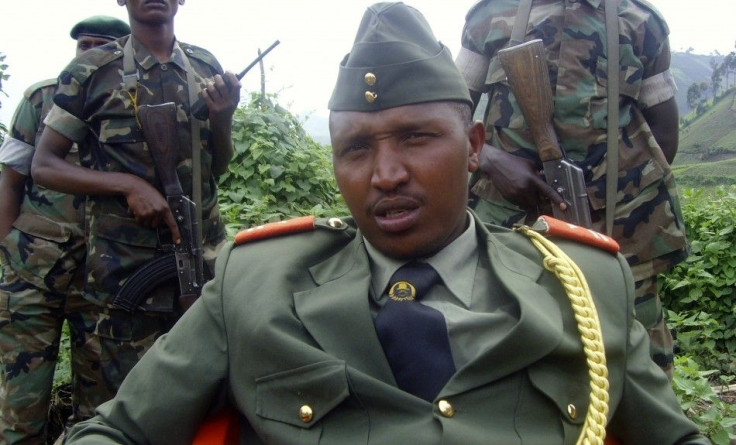ICC Chief Wants Congolese Warlords Ntaganda and Mudacumura Arrested

The International Criminal Court is seeking arrest warrants for African rebel leaders Bosco Ntaganda and Sylvestre Mudacumura, who are allegedly responsible for crimes against humanity in eastern regions of the Democratic Republic of the Congo (DRC).
ICC chief prosecutor Luis Moreno-Ocampo told the United Nations General Assembly on Tuesday that he hopes that arrest warrants against leaders of militias could help to stop the crimes and that violence has continually plagued the DRC for nearly 20 years.
Ntaganda, nicknamed the Terminator, is already wanted by the ICC for recruiting child soldiers, but Moreno-Ocampo felt it necessary to add charges to bring about a swifter arrest. The new warrant is for crimes against humanity -- including murder, ethnic violence, rape and sexual slavery -- and for attacks on civilians undertaken when Ntaganda was a commander in Thomas Lubanga's Union of Congolese Patriots (UPC).
All of the latest charges relate to crimes allegedly committed in the DRC between September 2002 and September 2003, when, at the end of the Second Congo War, the UPC was notorious for surrounding and shelling villages of the Lendu and other non-Hema tribes, and then coming into the areas afterward to rape and kill survivors, according to Congo Planet.
When impunity prevails, persons like Bosco Ntaganda are encouraged to continue committing crimes. They increase their power through violence ... Now more than ever is the time to arrest him, the ICC said in a statement.
Bosco Ntaganda has used the time offered to him since the first ICC arrest warrant was issued in 2006 to expand his power on new territories, and to maintain a power base thanks to his crimes, and the violence of persons under his control, Moreno-Ocampo said in a statement.
Lubanga, who founded the UPC and its military wing, the Patriotic Forces for the Liberation of Congo, was the first person ever convicted by the ICC. His trial began in 2009 and he was found guilty of conscripting and enlisting children under the age of fifteen years and using them to participate actively in hostilities in March.
Mudacumura is a top commander in the Democratic Forces for the Liberation of Rwanda, or FDLR, a Hutu militia that was formed after the Rwandan genocide and fled to Congo, in part to avoid prosecution for war crimes committed during and after the Rwandan Civil War.
Both Ntaganda and Mudacumura are believed to be in Congo's North and South Kivu provinces, where at least 11 United Nations peacekeepers were wounded on Monday, an act which the Security Council viewed as an indication of the deteriorating security in the region, according to Reuters.
For too long the populations of North Kivu have been surrounded by violence ... Whichever way they turn, the civilian populations in the Kivus see violence, suffering and manipulation of their situation by armed groups. It is time for them to see justice, the court stated.
The ICC is hoping the Congolese and Rwandan armed forces will capture Ntaganda and Mudacumura and hand them over to the court. However, Ntaganda signed a peace treaty with Congo's government in 2009, which integrated his militia into the regular army, and the possibility of an arrest and extradition is now a political matter. While the DRC said it hasn't ruled out sending Ntaganda to The Hague, the Congolese government says it intends to catch him and try him in our country, according to South Africa's News 24.
It is not excluded but it depends on the decision taken by our judges, government spokesperson, Lambert Mende, told AFP.
He will be judged according to our laws, and it is our justice that will determine if he should be extradited or not ... We have our own grievances against the general Ntaganda, who was associated at one moment with the peace process and who has committed an act of felony, compounded by several blood crimes against both our army and civilians, he added, referring to recent clashes between rebels and the army in North Kivu.
© Copyright IBTimes 2025. All rights reserved.





















